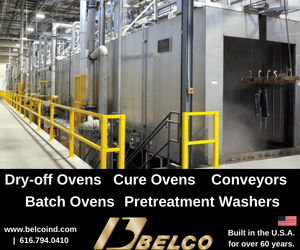NASF 1000 Program Seeks Support
NASF 1000 Program Addresses Regulatory, Legislative and Legal Actions on Behalf of Surface Finishers.
The NASF 1000 program was established to ensure that the surface finishing industry would have resources to effectively address regulatory, legislative and legal actions impacting the industry, NASF members and their workplaces. All funds from the NASF 1000 program are used exclusively to support specific projects and initiatives that fall outside the association’s day-to-day public policy activities. The commitment to this program is one of the most vital contributions made in support of surface finishing and directly shapes the future of the industry.
The sustained commitment from industry leaders has helped the NASF remain strong and credible in informing regulatory decisions across the nation. Specific projects funded through the NASF 1000 make a measurable difference in how the industry navigates emerging challenges, communicates credibly with policy makers, and advocates for a strong science base for rules or standards that affect surface finishing.
Please consider supporting the NASF 1000 program. If you have any questions or would like additional information regarding the NASF 1000 program or the broad array of NASF public policy activities, please contact Jeff Hannapel with NASF at jhannapel@thepolicygroup.com.
Related Content
-
Reducing VOCs
Coating materials (paint and solvent) are one of the most significant sources of VOC generation. John Owed of Carlisle Fluid Technologies offers advice for reducing VOC consumption.
-
Liquid Chrome Vs. Chromic Acid Flake
Contemplating how to continue offering chromic acid services in an increasingly stringent regulatory world? Liquid chrome products may be the solution you’re looking for.
-
Hexavalent to trivalent chromium — the environmental benefits
Regulatory pressures to switch from hexavalent chromium to trivalent alternatives are a growing concern for many finishing operations. In this Products Finishing Ask the Expert clinic, Brittany McKinney of Pavco discusses the environmental considerations driving these regulations.









.jpg;maxWidth=300;quality=90)


